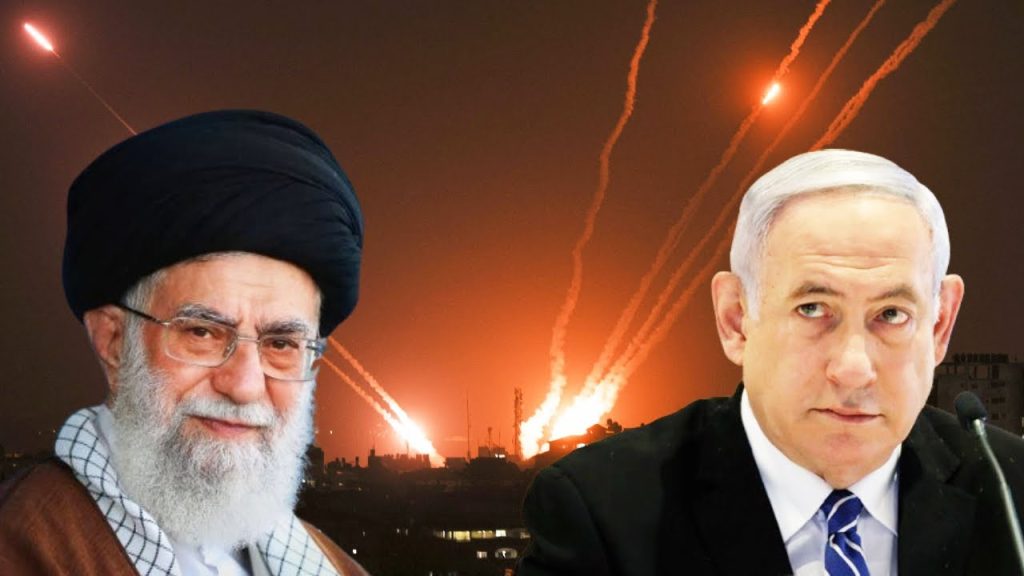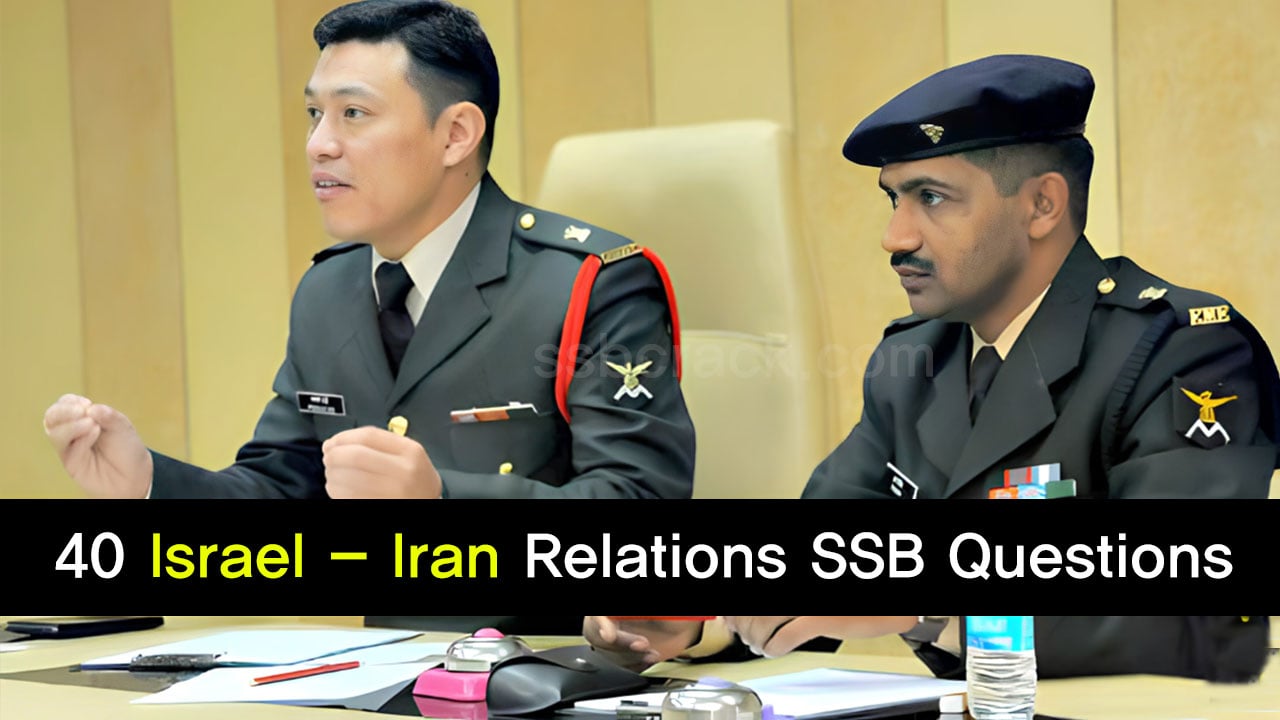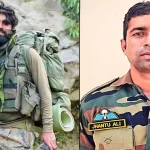The Israel-Iran relationship is a complex and ongoing conflict marked by historical changes and contemporary geopolitical issues. This relationship has shifted significantly through four major phases:
- Ambivalent Period (1947-1953): Initial tensions existed when Iran voted against the United Nations Partition Plan and Israel’s UN membership.
- Friendly Period (1953-1979): Following the reinstallation of Shah Mohammad Reza Pahlavi in 1953, diplomatic and economic relations flourished between Iran and Israel, driven by shared interests in the Middle East.
- Post-Revolution Tensions (1979-1990): Iran’s 1979 Islamic Revolution, which replaced the Shah with a theocratic government, led to a major rift as Iran ended diplomatic ties with Israel.
- Open Hostility (1991-present): The relationship devolved into outright hostility as Iran adopted an anti-Israel stance and began supporting militant groups opposing Israel. Since the Gulf War, both countries have engaged in proxy conflicts, especially within Syria and Yemen, affecting the broader Middle East geopolitics.

The ongoing Israel-Iran proxy conflict includes direct military clashes, cyber attacks, and support for opposing groups in various Middle Eastern conflicts.
SSB Interview Questions on Israel-Iran Relations for Defence Aspirants
Here are 50 questions that could be asked in an SSB (Services Selection Board) interview regarding Israel-Iran relations, along with sample answers to help aspirants prepare effectively.
1. What are the primary factors causing tension between Israel and Iran?
- Answer: Key issues include Iran’s support for groups like Hezbollah and Hamas, Iran’s nuclear ambitions, and Israel’s opposition to an Iranian military presence near its borders.
2. Explain the “Begin Doctrine” in the context of Israel-Iran relations.
- Answer: The Begin Doctrine is Israel’s policy of preventing hostile states from obtaining nuclear weapons. It plays a major role in Israel’s response to Iran’s nuclear program.
3. How did the 1979 Iranian Revolution affect Iran-Israel relations?
- Answer: It led to the end of diplomatic ties between Iran and Israel as Iran’s new theocratic government refused to recognize Israel’s legitimacy.
4. What role does Hezbollah play in the Israel-Iran conflict?
- Answer: Hezbollah, a Shia militant group backed by Iran, opposes Israel and has been involved in direct confrontations with Israel, serving as a proxy in the broader conflict.
5. How has Israel countered Iran’s influence in Syria?
- Answer: Israel has conducted airstrikes against Iranian targets in Syria, aiming to prevent an Iranian military buildup near its borders.
6. What is Iran’s stance on Israel’s existence?
- Answer: The Iranian government does not recognize Israel and has often called for its dissolution, citing support for Palestinian sovereignty.
7. Discuss the role of the US in the Israel-Iran relationship.
- Answer: The US supports Israel’s stance against Iran’s nuclear program and imposes sanctions on Iran, aligning closely with Israel’s security interests.
8. How did the Gulf War impact Israel-Iran relations?
- Answer: After the Gulf War, Iran saw an opportunity to increase its influence in the Middle East, worsening its antagonistic stance toward Israel.
9. Explain Iran’s “Axis of Resistance” strategy.
- Answer: Iran supports groups and states opposing Western and Israeli influence in the region, including Hezbollah and Palestinian factions.
10. What is Israel’s Iron Dome, and how does it relate to Iran?
- Answer: Iron Dome is an anti-missile defense system that intercepts short-range rockets, crucial for defending against missiles launched by Iran-backed Hezbollah.
11. What was Operation Seashell?
- Answer: This was Israel’s covert operation in the 1980s to supply Iran with arms during the Iran-Iraq War, despite their adversarial relations.
12. What are some recent developments in the Israel-Iran conflict?
- Answer: Recent escalations include Israel’s airstrikes on Iranian bases in Syria and Iran’s retaliation through its regional proxies.
13. Why is the Strait of Hormuz significant in the Israel-Iran conflict?
- Answer: Iran has threatened to block the strait in response to hostilities, affecting global oil supplies and leveraging power over adversaries, including Israel’s allies.
14. What are Iran’s “proxy conflicts” in the Middle East?
- Answer: Iran supports factions like Hezbollah in Lebanon and the Houthis in Yemen, engaging in indirect conflicts with Israel and its allies.
15. How does cyber warfare feature in Israel-Iran relations?
- Answer: Both nations have reportedly engaged in cyber attacks on each other’s infrastructure, including attacks on nuclear facilities and government systems.
16. Discuss Israel’s alleged involvement in assassinations of Iranian nuclear scientists.
- Answer: Israel is believed to have conducted covert operations to slow Iran’s nuclear development by targeting its nuclear scientists.
17. What is Iran’s stance on the Palestinian-Israeli conflict?
- Answer: Iran opposes Israel’s statehood and supports Palestinian factions against Israel, aiming to end Israeli control over Palestinian territories.
18. Explain the significance of the Eilat-Ashkelon pipeline in Israel-Iran relations.
- Answer: This pipeline, built with Iranian support, highlights past economic cooperation, which ceased after Iran’s 1979 revolution.
19. What were the impacts of the 2015 Iran Nuclear Deal on Israel-Iran relations?
- Answer: Israel opposed the deal, fearing it would allow Iran to eventually develop nuclear weapons despite international inspections.
20. How does Israel perceive Iran’s nuclear program?
- Answer: Israel views it as an existential threat, arguing that a nuclear-armed Iran would destabilize the region.
Additional 30 Questions:
Q: What is the stance of Israel regarding Iran’s nuclear program?
A: Israel strictly opposes it, fearing it could lead to regional nuclear proliferation.
Q: Define the concept of “preemptive strikes” in Israel-Iran relations.
A: Israel may strike first to prevent Iran from gaining capabilities seen as threats.
Q: How do Iran and Israel leverage regional alliances in their conflict?
A: Iran partners with Hezbollah and Syria, while Israel allies with Gulf states like Saudi Arabia.
Q: What are the economic sanctions on Iran, and who implements them?
A: Sanctions are mainly by the US and EU, aiming to curb Iran’s nuclear ambitions.
Q: Discuss Iran’s Revolutionary Guard’s role in the conflict.
A: They conduct military operations and support groups like Hezbollah.
Q: What was Operation Orchard?
A: Israel’s 2007 airstrike on a suspected nuclear reactor in Syria, aimed at curbing regional nuclear threats.
Q: What is Iran’s “Quds Force”?
A: An elite IRGC unit involved in foreign operations, including support for allies against Israel.
Q: Explain the significance of Quds Day.
A: Iran’s annual event condemning Israel and shows solidarity with Palestinians.
Q: What is Israel’s policy on containing Iran’s influence?
A: Israel actively seeks to counter Iran’s military presence in neighboring countries.
Q: How does the US-Israel alliance affect Iran-Israel relations?
A: US support strengthens Israel’s stance and adds pressure on Iran.
Q: Explain the concept of “soft power” in the Israel-Iran conflict.
A: Iran uses cultural influence to spread anti-Israel sentiment.
Q: What is Israel’s stance on the presence of Iranian forces in Syria?
A: Israel views it as a direct threat and has conducted airstrikes to prevent it.
Q: How does Israel address Hezbollah’s missile capabilities?
A: Through defensive measures like the Iron Dome and targeted airstrikes.
Q: What is the role of the UN in the Israel-Iran conflict?
A: The UN imposes sanctions and calls for diplomatic solutions but has limited enforcement power.
Q: What are Israel’s “Red Lines” with Iran?
A: These are conditions Israel warns Iran against crossing, such as nuclear development.
Q: Explain “mutual deterrence” in the context of Israel-Iran relations.
A: Both nations have strategies to prevent direct conflict through threats of retaliation.
Q: What is Iran’s ideological opposition to Israel based on?
A: Iran views Israel as a foreign entity in the Islamic world and supports Palestinian claims.
Q: Discuss the implications of the “Deal of the Century” on Israel-Iran relations.
A: Iran condemned it, calling it unjust to Palestinians and further alienating Israel.
Q: What is Israel’s “Shadow War” with Iran?
A: Covert operations to curb Iran’s military and nuclear advancements.
Q: How do Russia and China impact the Israel-Iran dynamic?
A: Both nations support Iran diplomatically, countering Western influence.
Also Read:













